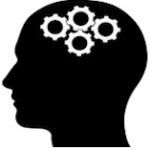This is my response to a recent article in Commentary: “The Closing of the Scientific Mind”
http://www.commentarymagazine.com/article/the-closing-of-the-scientific-mind/#.Us1yaC0En0Q.twitter
“Today science and the “philosophy of mind”—its thoughtful assistant, which is sometimes smarter than the boss—are threatening Western culture with the exact opposite of humanism.”
David Gelernter has decried the anti-humanism he finds in contemporary science and some philosophical lines of inquiry, and puts forward as its objectionable essence a point of view he attributes to Ray Kurzweil, a chief exponent of engineering sentience. But Prof. Gelernter’s “Kurzweilism” is an obvious straw man, made by extrapolating a worldview from Ray Kurzweil’s observations and speculations with which I doubt Kurzweil would agree. The argument advances a ‘robotic materialism’ as the outcome of our efforts to understand and engineer the mechanisms of mind and consciousness (that damned apple in the garden thing all over again), and literally pits this “Kurzweilism” against “the sanctity of life.” And I don’t think this is meant as hyperbole. I can hear the villagers gathering their pitchforks and torches in the background.
What is not clear to me is why, for Gelernter and others, the simple fact of the emergence of sentience from matter is not considered sufficiently miraculous, why they still need to invoke a projected personality as the author of the miracle of consciousness. As a kid, I remember the feeling of tuning my crystal radio kit until the miraculous emergence of coherent music from the squawking chaos announced there was order in the world, and we just need to be able to tune in to it. I got very humanistic shivers as I appreciated this order, hidden so elegantly in plain sight in the world all around me. The experience was anything but robotic, and closer to sanctity than most of the cultural ceremonies in which I’ve participated.
I would ask Prof. Gelernter to consider for a moment what his relationship would actually be to a fabricated sentience, should he believe such a thing as an engineered awareness is possible. I wonder if he has read “Cloud Atlas,” which gives a thoughtful look at the continuum of relationships between conscious beings, including “fabricants,” along an axis of human experience described by property, slavery, freedom, and love. But I suppose if he simply refuses to believe such a thing as a fabricated sentience is possible, then there’s not much point in discussing the subject further anyway. That said, what I do find especially odd about the Gelernter piece is its essential Judeo-Christian-centricity. Looking at the world from a Buddhist perspective, for example, the emergence of forms and values doesn’t require the enlightening influence of Western Civilization at all, not even that of Keats or Tolstoy, to whom Gelernter refers as prime examples of the essential human consciousness he is sure computation could never produce. But, whatever narrative Prof. Gelernter prefers to believe may explain the emergence of our conscious existence, I’d like to warn him that I’m pretty sure it’s turtles all the way down.
1/8/2014

